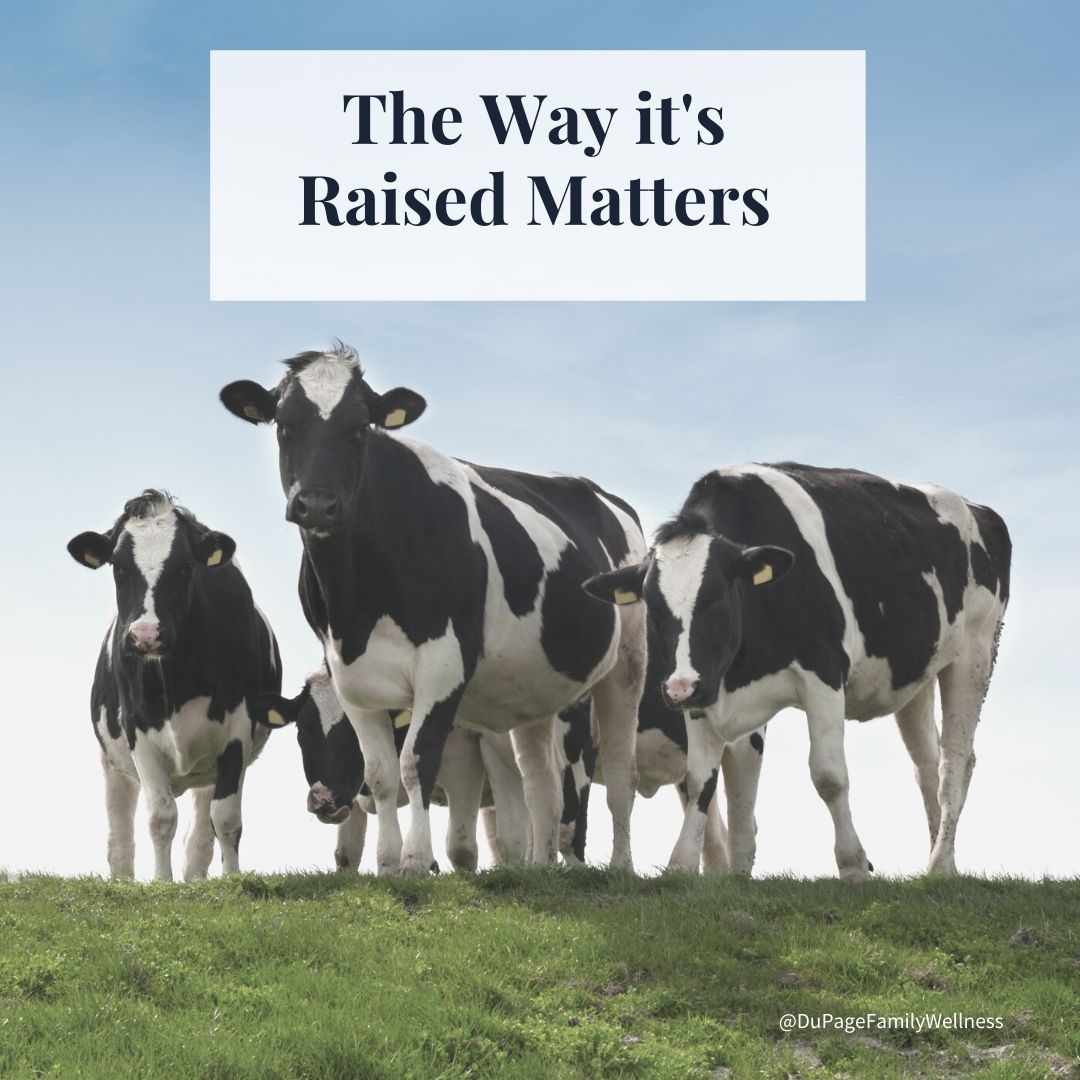 When it comes to our food, not all sources are created equal. Real food is something that was grown in the ground or was once alive. But even with real food, it is important to consider the quality.
When it comes to our food, not all sources are created equal. Real food is something that was grown in the ground or was once alive. But even with real food, it is important to consider the quality.
The quality of your food in great part depends on the environment in which it was raised. For plants it is important to find out if it was sprayed with a bunch of nasty chemicals. For animal products it is important to look at the health of the animal.
Let's take a look at what this means for you when selecting meats and dairy.
The Natural Environment
Years ago, our ancestors were hunters and gatherers. This means that the animals they ate were free to roam in their natural habitat. They got plenty of exercise and ate their natural diet. These factors created extremely healthy animals, which in turn became extremely healthy food.
As farming became more common, the animals were still kept in a natural environment. The cows were able to graze on grass, and had room to move about. These healthy cows also made healthy food.
But now, many of our livestock are kept in cramped quarters where they don’t get any exercise. They are not able to eat their natural diet. This results in unhealthy livestock that are often pumped full of antibiotics and hormones to fatten them up. As you can imagine these animals do not make healthy food for us.
Grass Fed and Organic Meat
The healthier the animal is, the healthier it’s meat and dairy will be. Not only will it be free of unwanted antibiotics and hormones, it is also less likely to be contaminated with dangerous bacteria.
A 2015 study found that “18% of the conventional beef samples were contaminated with superbugs — the hazardous bacteria that are resistant to three or more classes of antibiotics — compared with just 6% of grass-fed beef samples, and 9% of samples that were organic or raised without antibiotics.”
The difference is so stark that Functional Medicine Director Mark Hyman, MD says, “grass fed meat - is not just better for the environment and better for the animals, but better for you, too. In fact, grass-fed meat is so nutritionally superior to factory-farmed meat that it is practically a different food.”
What About Dairy
Think for a moment about the purpose of a cow’s milk. It is to get a baby cow to gain weight and grow quickly. With this in mind, we need to consider the impact that dairy is having in our bodies.
If you are not wanting to grow and gain weight, it may be worth considering reducing or eliminating your dairy consumption. Part of the problem with dairy is that it can spike your insulin levels and cause inflammation in the body.
If you do tolerate dairy, it is best to consume it in the most natural state possible. Full fat dairy is a complete food that will not spike your blood sugar as much as low fat dairy. You may also want to commit to buying organic dairy products that have not been given extra hormones to get the cows to produce more milk for the farmers.
I do not want you to feel overwhelmed by this information. It took me years to get to the point of buying organic food. We are all on a journey towards health, and we must take the journey one step at a time.
Dr. Jamie

